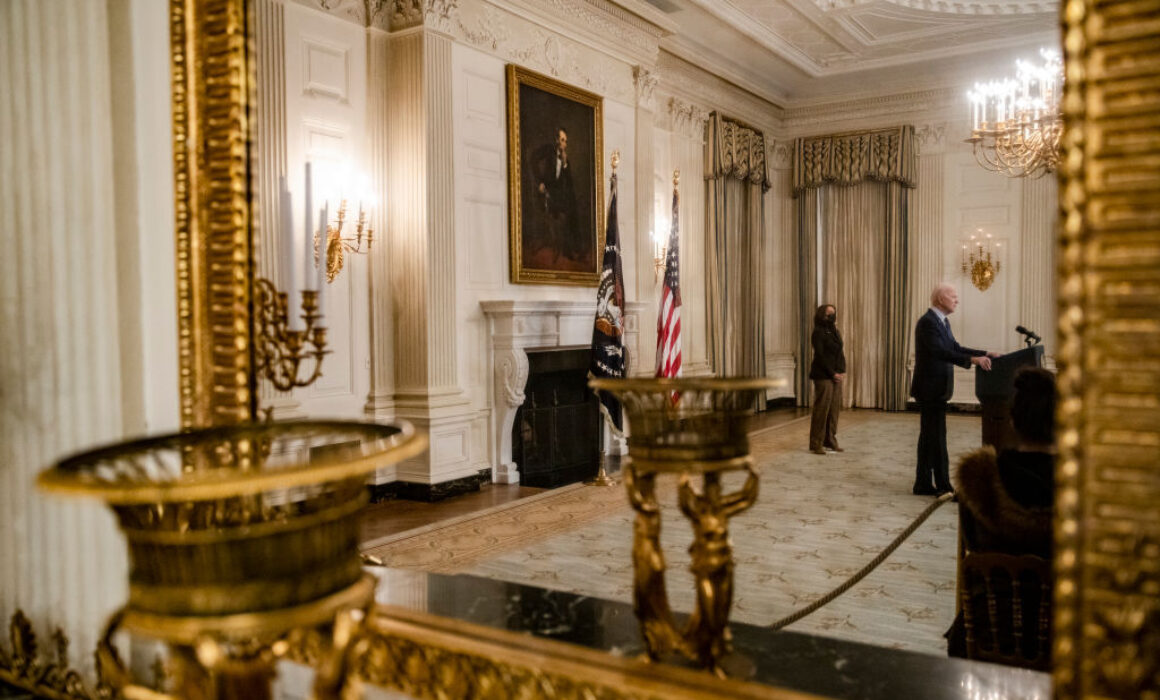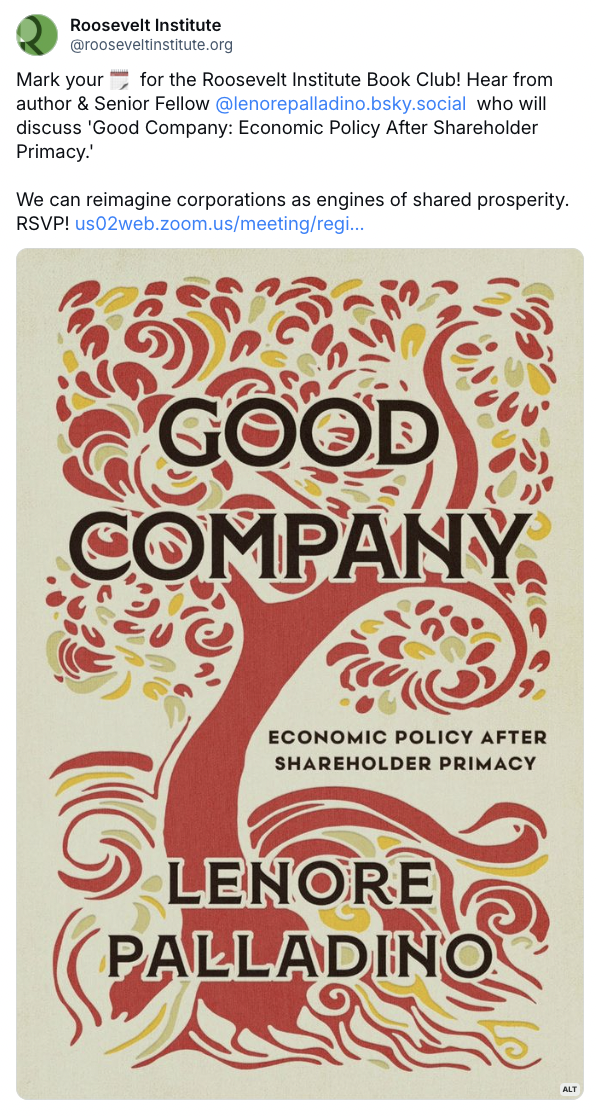The Economic Legacy of the Last 4 Years
January 17, 2025
Plus, the SEIU and AFL-CIO meet the moment and join forces again.
The Roosevelt Rundown features our top stories of the week.

President Joe Biden speaks in March 2021 following the passage of the American Rescue Plan. (Samuel Corum/Getty Images)
The Lessons and Ambitions We’ll Carry Forward
Biden lost the election. Some changes from the last four years, however, will continue to shape our world for years beyond January 20. David Leonhardt at the New York Times agreed this week that one lasting impact from the outgoing presidency could be the idea “that the federal government should take a more active role in both assisting and regulating the private sector than it did for much of the previous half-century.” That idea is a major part of the new economic governance we’ve fought for at Roosevelt—and that we’ll have to work to make more durable in the years to come.
Roosevelt’s Suzanne Kahn reflects on the Biden administration’s impact in a blog post this week, arguing that despite a rapidly successful macroeconomic recovery in the wake of the pandemic, “for most people the world has not gotten sufficiently less scary in the last four years.” Here’s why:
- Bold spending efforts taken in 2021 to prevent the US economy from teetering into a recession slashed child poverty and helped workers receive wages when their workplaces shut down—but crucially, these policy changes were not permanent. “When those successful programs all ended,” Kahn writes, “Americans did not learn that the government could create stability, but rather that their economic conditions were as tenuous as ever.”
- The tough reality is that new political economies aren’t built in a day. “We have big ambitions,” Roosevelt President and CEO Felicia Wong wrote in November. “They cannot be conceived of, or won, in two- or four-year increments.”
- Proponents of progressive economics will have to continue the fight for a proactive government that supports the interests of labor over capital and coordinates a just transition away from fossil fuels—elements of which surfaced in the past four years through demonstrable successes in green energy investment, antitrust enforcement, and pro-union worker policies.
What comes next is uncertain. “This is still a moment of ideological turmoil,” Kahn writes. “A new ideological order will come from someone who can create stability for Americans, not capitalize on their fear.”
- Read Kahn’s blog post: “It’s the Fear, Stupid: Why Biden’s FDR-Size Aspirations Fell Short.”
- And listen to Wong dive deeper into this political moment on The Realignment podcast: “What Joe Biden’s Legacy Means for the Future of American Politics.”
A United Front: SEIU and AFL-CIO Team Up
In a strategic move, the 2-million-member Services Employees International Union (SEIU) is re-affiliating with the 13 million members of the American Federation of Labor and Congress of Industrial Organizations (AFL-CIO).
“By joining forces, the SEIU and the AFL-CIO can better pool resources, coordinate strategies, and amplify their collective voice in advocating for workers,” Director of Worker Power Alí Bustamante and Program Manager Lena Bilik write on the Roosevelt blog. “Although sometimes moments of crisis can lead to infighting, labor is showing us that what the Left really needs at this moment is to come together.”
Read the post: “A United Labor Front: SEIU’s Strategic Move to AFL-CIO”
What We’re Talking About
What We’re Reading
- The wildfires in Los Angeles are the latest devastating symptom of the climate crisis. Roosevelt Principal Economist Mike Madowitz spoke with CNN on the anticipated costs of relocating and rebuilding, and Senior Fellow Sarah Bloom Raskin spoke to the American Prospect about the financial risk of climate change—particularly to the home insurance industry:
- “The short-term insurance problem is making homeowners whole,” Raskin said. “The longer-term insurance problem, which can collapse quickly into the shorter-term one, is the risk to the entire financial system.”
- President-elect Donald Trump’s plans to slash the public sector workforce could disproportionately harm Black Americans, who make up 19 percent of federal government workers.
- “It would be pretty devastating to the Black community writ large,” Senior Fellow Michelle Holder explained, “just in terms of loss of income, a loss of benefits, potentially loss of health insurance.”
- Uber-style “gig” nursing apps are positioning themselves as the solution to problems caused by the corporatization of health care. For Inequality.org, Roosevelt’s Aastha Uprety recaps our latest brief, a study into this threat to both worker well-being and public health.
